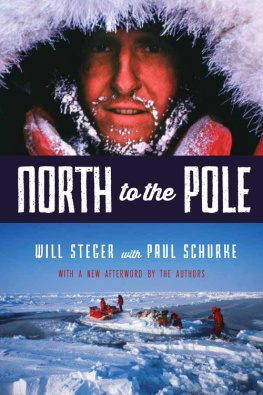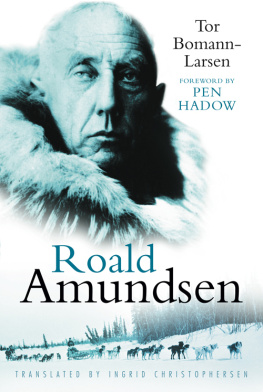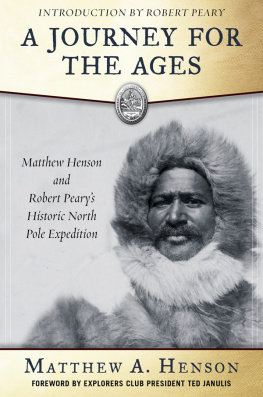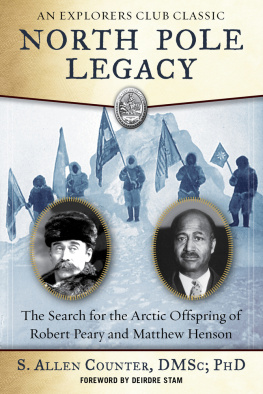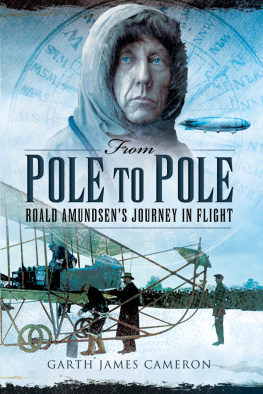Copyright 2014 by Anthony Galvin
All rights reserved. No part of this book may be reproduced in any manner without the express written consent of the publisher, except in the case of brief excerpts in critical reviews or articles. All inquiries should be addressed to Skyhorse Publishing, 307 West 36th Street, 11th Floor, New York, NY 10018.
Skyhorse Publishing books may be purchased in bulk at special discounts for sales promotion, corporate gifts, fund-raising, or educational purposes. Special editions can also be created to specifications. For details, contact the Special Sales Department, Skyhorse Publishing, 307 West 36th Street, 11th Floor, New York, NY 10018 or .
Skyhorse and Skyhorse Publishing are registered trademarks of Skyhorse Publishing, Inc., a Delaware corporation.
Visit our website at www.skyhorsepublishing.com.
10 9 8 7 6 5 4 3 2 1
Library of Congress Cataloging-in-Publication Data is available on file.
Cover design by Brian Peterson
Cover photo credit Thinkstock
Print ISBN: 978-1-62914-504-4
Ebook ISBN: 978-1-62914-968-4
Printed in the United States of America
CONTENTS
The Arctic trails have their secret tales
That would make your blood run cold.
Robert Service
INTRODUCTION
January 1926, Leavenworth Prison, Kansas
The tall, handsome man walked into the wardens office and sat on the long wooden bench. Though he was getting older and his blond hair was turning gray, he still carried himself well and retained the distinguished look of a prosperous country doctor. His eyes were as piercing as ever. But his face was pale and his body had lost the firmness of his glory days. The years in Leavenworth had done that.
Dr. Frederick Cook was nervous. He got few visitors, not because he was forgotten but because he discouraged them. He did not want people to see him like this. Even his ex-wife, whom he remained close to, was barred. Though he still loved her dearly and she was in his thoughts every day, she would no longer be in his life. Every request for an interview had been turned down. Journalists, old friends, people who had been part of his earlier life when he had been celebrated coast to coast, they were all on the no visit list. But for the man who was on his way to the prison, he had to make an exception. Their lives were entwined in so many ways.
Cook and his guards heard the sound of approaching footsteps, doors clanging open and banging shut, as the visitor made his way to the wardens office. Then the door opened and a guard stepped in. Behind him was a big, ruddy-faced man, dressed well but looking slightly uncomfortable in his fashionable clothes: Roald Amundsen, the famous polar explorer, and the first man to the South Pole. Amundsen stepped around the guard and stood facing Cook, who had risen on his entrance. The two men stared at each other for a moment, then broad smiles broke out on their faces. As if of one mind, each man stepped forward and grasped the other firmly by the hand.
They sat on the wooden bench, side by side. Amundsen did not let go of Cooks hand. He was European, and comfortable with the intimacy. Cook was glad to feel the warmth of friendly companionship. After an exchange of pleasantries, under the watchful and curious eyes of the warden and a few prison guards, talk turned to the futurespecifically to Amundsens plans to fly to the North Pole.
They avoided the past, as if by a mutual pact. The past was like a ghost in the room, brooding over them. It was one of two ghosts they were both acutely aware of. But they brushed them aside, as Amundsen spoke of the failure of his attempt to fly to the Pole in 1925. The next time, he planned to use an airship. He grew animated as he told Cook about the Norge , and his plans for a transpolar flight. He had seen so many features on the ice during the 1925 flight, features which confirmed sightings Cook had made nearly two decades previously. As he listened, Cook got excited. Although he would not say it to the younger man, he knew those sightings could back up his claim, the claim that had both crowned his lifes achievements and blighted them.
On April 15, 1909, Cook had arrived in Annoatok, northern Greenland, with a tale of unbelievable survival against the odds. He had disappeared fourteen months earlier with two Eskimo companions, last seen heading north across the frozen polar sea. When he reappearedlong after he was given up for deadhe told a delighted world that he had reached the Pole on April 22, 1908, but the drift of the polar sea had meant that it took him a full year to return to civilization.
Unluckily for Cook, another American explorer had also set his heart on achieving the Pole. Naval Commander Robert Peary had impressive backers; even President Roosevelt had been behind him. Peary set out a year later than Cook, but had not got lost on his return. He reached civilization within five days of Cook, and also claimed to have reached the Pole. He said he got there on April 6, 1909. Cook was happy to share the glory; Peary, less so. The naval commander immediately threw the weight of his considerable circle of friends into a frenzied effort to discredit Cook. The two men, once friends, ended up in an unseemly media war. Bit by bit, all of Cooks previous achievements came under scrutiny. Peary even paid a massive bribe to one man to discredit Cooks claim to have been the first to climb Mount McKinley, the highest point in North America. It was a campaign of dirty tricks and intense bitterness, and it worked. Within a year, Cook was seen by everyone as a fraud.
The stigma followed him for the rest of his life. Now Peary was long dead, but as Cook languished in Leavenworth Prison, he knew that it was the ghost of Peary that put him there; the judge at his trial had been a personal friend of his rival, and had imposed a sentence far harsher than his offense warranted.
The other ghost that brooded over Cook and Amundsen in the dank visiting room was the elemental spirit of the Pole itself. It had shaped and dominated both their lives. Cook had known from his early twenties that he wanted to reach 90 degrees north; Amundsen had known from his teens, when he had started sleeping naked on top of his sheets, with his windows wide open. The frozen Norwegian air hardened his body for the adventures he dreamed of, and there had been many adventures. Amundsen had spent the first winter in Antarctica with Cook, and had been the first to navigate the Northwest Passage. In 1908 he was ready to make his own dash for the Pole. Then, within a week, he had heard that both his rivals, Cook and Peary, claimed to have snatched the prize.
Devastated, he altered his plans and secretly sailed south, becoming the first man to reach the South Pole, an accomplishment he considered a sort of consolation prize. As he sat with Cook that day in 1926, he must have wondered how things might have turned out if Cook and Peary had not both claimed the main prize. He knew that there were considerable doubts over Cooks claim, and he suspected that there was doubt over Pearysthe brash American had never had a high reputation in Europe. But history had decided, at least then, to accept Pearys claim, and Amundsen had to go along with that verdict.
To Cook, Amundsen appeared pensive and almost depressed that afternoon.
Our lot has been a hard one, Amundsen said with a sigh. From the depths of poverty to the heights of glory. From brief spells of hard earned success to the scourge of condemnation. I have wondered for years how you stood it all. I have had the same, with perhaps not so much of the knife in it, but with quite as much of the pain of envy.



